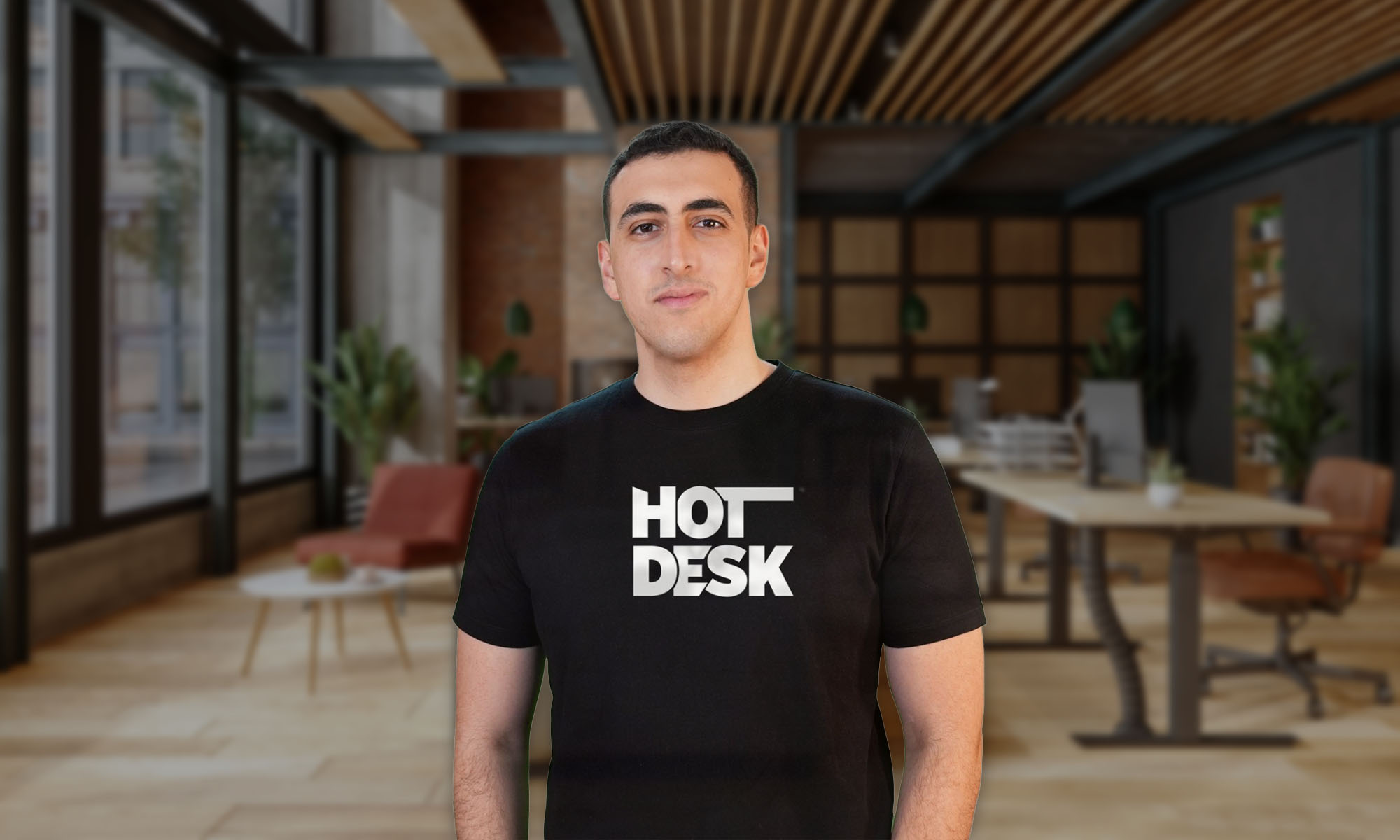News
Meet Hotdesk: A Homegrown UAE Remote Workspace Platform
Co-founded by Mohamed Khaled, Hotdesk has already disrupted the tech industry, and is helping to support flexible and remote co-working worldwide.

Although the UAE has become a favored location for tech startups in recent years, Hotdesk, founded by Mohamed Khaled, stands out as one of the most compelling success stories. Despite maintaining a technical and operational base in Egypt, Hotdesk has been headquartered in the UAE since its inception in 2020, making it a genuine homegrown platform.
Hotdesk has a simple USP: The app provides instant access to remote workspaces, opening the doors to over 148+ establishments in over 800 cities worldwide. In the same way Airbnb disrupted the hospitality industry, Hotdesk makes it simple to book a desk, meeting room, or whole office within seconds.
Cofounder and CEO Mohamed Khaled has over seven years of experience working in the UAE and beyond. In addition to having ambitious expansion plans, he has already assembled a team of 50 top-flight professionals with resumes featuring the likes of Google, Swvl, and WeWork.

“Prior to entering the startup world, I spent more than six years as a Senior Associate working for one of the Big Four [including] PwC, Deloitte, EY, and KPMG, accounting for nearly 40% of the industry’s $150 (Dh550.89) billion global market. I spent most of my time traveling and working from various locations across the region, often in silos; as a result, I was limited to the options of where to work from when it wasn’t at a client’s office. Towards the end of my time at the company, I began to rethink the ways of co-working, realizing that more flexible working options were needed for workforces of the future to adapt and thrive, and that was the germinal idea behind Hotdesk,” says Mohamed Khaled, co-founder and CEO of Hotdesk.
Also Read: Advanced Tech Adoption & Innovation Are UAE’s Top Priority
According to Khaled, Hotdesk is focused on supporting a hybrid work model known as “work 3.0”. Since COVID-19, many consultants, freelancers, and creatives now operate from a blend of different spaces, which means that traditional co-working venues, with their high fees and long contracts, aren’t always a good fit. Hotdesk overcomes this issue by allowing users to search for and book spaces at hourly, daily, monthly, or yearly terms without long contracts or tricky terms and conditions.
So how does Hotdesk benefit from offering this service to its users?
“Hotdesk matches supply and demand in the market, and the end-user always gets the best prices from the co-working hosts, enjoying us as a free service. We charge a market-based fee that varies slightly from market to market, and that fee is then collected from the co-working hosts’ revenue. Some might compare the model with Uber, Careem, or Airbnb, although we charge a lower fee and help our hosts sell workspaces, which otherwise would be vacant,” says Mohamed Khaled.
After a year of explosive growth, which saw Hotdesk grow from 15 bookings in its first month to over 10,000+ per month today, the company will next focus on expanding into the Kingdom of Saudi Arabia, before setting its sights on the lucrative European market.
News
HiFuture Wraps Up Successful GITEX GLOBAL 2024 Appearance
The electronics company wowed audiences at the world’s largest tech event with a range of wearable and smart audio devices.

This year’s GITEX GLOBAL 2024 in Dubai saw a huge number of startups, electronics firms, and innovators from around the globe gather for the tech sector’s largest event of its kind. One company making waves at this year’s expo was Chinese tech group HiFuture, which showcased a range of products with a focus on wearable technology and smart audio.
At the HiFuture booth, the company captivated attendees with cutting-edge smartwatches like the ACTIVE and AURORA, along with a range of powerful wireless speakers, earbuds, and even smart rings. Visitors were eager to check out the sleek new designs on offer and even had the chance to test out some of the products themselves.

Among the highlights were smartwatches combining dual-core processors with customizable options. The devices blended style and technology, offering health monitoring capabilities, personalized watch faces, and advanced AI-driven functionalities, giving attendees a taste of the future of wearable technology.
On the audio front, HiFuture’s wireless speakers left a lasting impression, offering rich, immersive sound in compact, portable designs. These speakers cater to both intimate gatherings and larger celebrations, offering versatility for users. Meanwhile, the company also showed off its Syntra AI technology, which it claims “revolutionizes health and fitness tracking by combining advanced optical sensors with intelligent algorithms for precise, real-time insights”.
Also Read: How (And Why) To Start A Tech Business In Dubai
The presence of HiFuture’s leadership team at GITEX 2024 underscored the importance of this event for the company, with CEO Levin Liu leading a team of executives, all keen to engage with attendees and offer insights into HiFuture’s vision, product development process, and future direction.
Overall, it seems that GITEX GLOBAL 2024 has been a rewarding experience for HiFuture. The enthusiasm and curiosity of attendees shown to the company’s diverse range of products was obvious, with the HiFuture team leaving on a high note and clearly excited and motivated by the event.

























